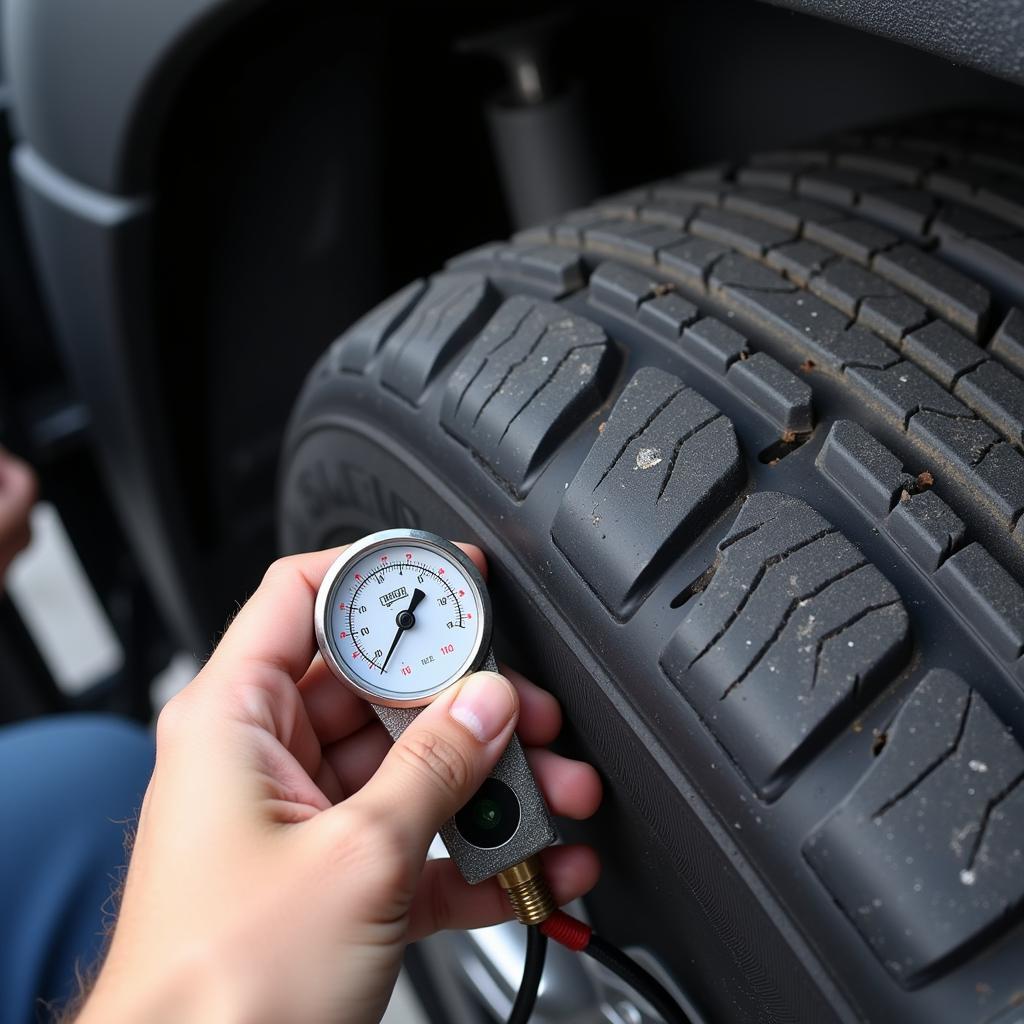Steering problems can range from a slight annoyance to a serious safety hazard. Understanding the potential causes is crucial for maintaining your vehicle and ensuring a safe driving experience. This article will delve into the common culprits behind steering issues, empowering you to diagnose and address them effectively.
Common Causes of Steering Problems
Several factors can contribute to steering problems, ranging from simple maintenance issues to more complex mechanical failures. Identifying the root cause is the first step towards a solution.
Low Power Steering Fluid
Low power steering fluid is a frequent cause of stiff steering. This fluid is essential for providing hydraulic assistance, making turning the wheel easier. Leaks in the system can deplete fluid levels, leading to difficulty steering.
Worn Power Steering Pump
The power steering pump pressurizes the fluid within the system. Over time, this pump can wear out, reducing its effectiveness and leading to steering difficulties.
Damaged Steering Rack
The steering rack is a crucial component that connects the steering wheel to the front wheels. Damage to this rack, often due to impacts or wear and tear, can result in loose or unresponsive steering.
Problems with the Tie Rod Ends
Tie rod ends connect the steering rack to the wheels. Worn or damaged tie rod ends can cause excessive play in the steering wheel and make it difficult to control the vehicle’s direction. Similar to car front differential problems, issues with tie rod ends can significantly impact handling.
Worn Ball Joints
Ball joints allow the suspension to move up and down while also allowing the wheels to turn. Worn ball joints can create play in the steering system and cause a clunking noise when turning. This issue is related to other suspension problems and can exacerbate steering issues.
Incorrect Tire Pressure
Even something as simple as incorrect tire pressure can contribute to steering problems. Under-inflated tires can make steering feel heavy, while over-inflated tires can make it feel light and unresponsive. This highlights the importance of regular tire maintenance.
 Incorrect Tire Pressure Affecting Car Steering
Incorrect Tire Pressure Affecting Car Steering
Alignment Issues
Improper wheel alignment can make the car pull to one side or make the steering wheel off-center. This issue can stem from various factors, including hitting potholes or curbs. Regular alignment checks are essential. Just like banked curve car problem solution, addressing alignment issues can improve steering response and stability.
Damaged Steering Column
The steering column connects the steering wheel to the steering mechanism. Damage to this column, often resulting from a collision, can significantly impair steering functionality. This can be a serious safety concern requiring immediate attention.
Electronic Power Steering Issues (For Cars with EPS)
Modern vehicles often use electronic power steering systems. Malfunctions within these systems, such as sensor failures or software glitches, can lead to a variety of steering problems. Diagnosing these issues often requires specialized diagnostic equipment. Understanding car low mileage problems can be useful as it can sometimes shed light on potential electronic issues in newer cars.
 Electronic Power Steering Malfunction in a Car
Electronic Power Steering Malfunction in a Car
Diagnosing and Addressing Steering Problems
“Regular maintenance and prompt attention to any unusual steering behavior are crucial for preventing serious problems,” says automotive expert John Smith, ASE Certified Master Technician. “Ignoring these issues can lead to costly repairs and compromise safety.”
Don’t underestimate the importance of regular checks. Identifying and addressing these issues promptly can save you both time and money. Similar to understanding car axle problem cost, being proactive about maintenance can prevent larger expenses down the line. Remember, as Jane Doe, another experienced mechanic, advises, “A little preventative maintenance goes a long way in ensuring a smooth and safe driving experience.”
Conclusion
Understanding What Would Cause Steering Problems In A Car is vital for any driver. From low power steering fluid to more complex electronic issues, recognizing the potential culprits allows for timely intervention and prevents minor issues from escalating. Regular maintenance and prompt attention to any unusual steering behavior are crucial for a safe and enjoyable driving experience. If you’re experiencing steering problems, connect with us at AutoTipPro for expert advice and assistance.
We are located at 500 N St Mary’s St, San Antonio, TX 78205, United States, and you can reach us by phone at +1 (641) 206-8880. We’re here to help you keep your car on the road and running smoothly.
FAQs
-
What are the signs of power steering problems? Stiff steering, whining noises, and fluid leaks are common indicators of power steering issues.
-
How often should I check my power steering fluid? Checking your power steering fluid level monthly is recommended.
-
Can I drive with steering problems? Driving with steering problems can be dangerous. It’s best to have the issue addressed by a qualified mechanic as soon as possible.
-
How much does it cost to fix steering problems? The cost of repairs varies depending on the specific issue and the make and model of your vehicle.
-
How can I prevent steering problems? Regular maintenance, including fluid checks and inspections, can help prevent steering problems.
-
What should I do if my steering wheel suddenly becomes hard to turn? If your steering wheel suddenly becomes difficult to turn, pull over safely and have your vehicle towed to a mechanic.
-
**Can worn tires cause steering problems? Yes, worn tires, especially those with uneven wear, can definitely contribute to steering issues. They can make the steering feel vague or cause the car to pull to one side. It’s a good practice to check them and have them replaced by a qualified technician when the wear reaches its limits. Similar problems can also arise from worn or damaged suspension components, much like what’s discussed in what steering problem causes car to shake.






Leave a Reply